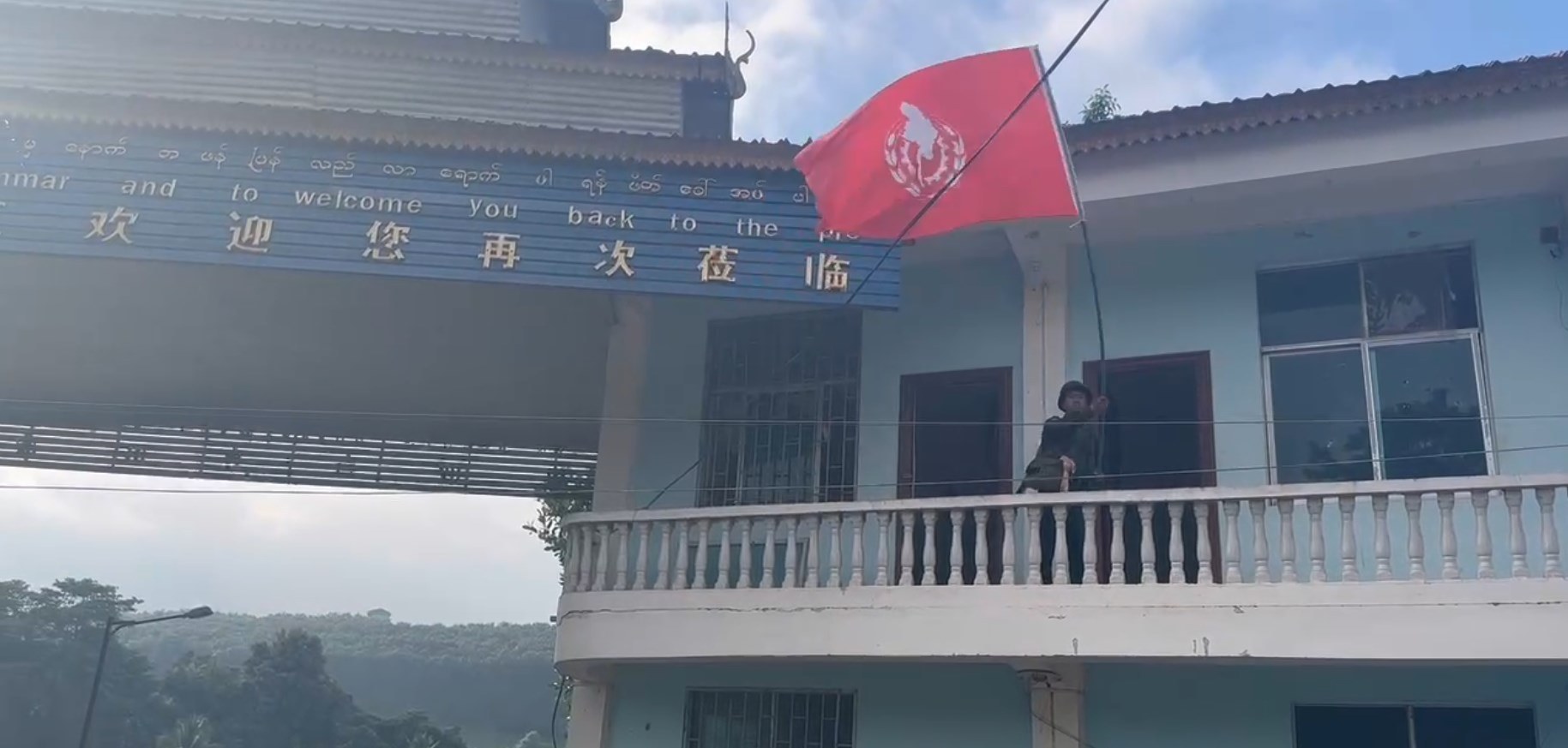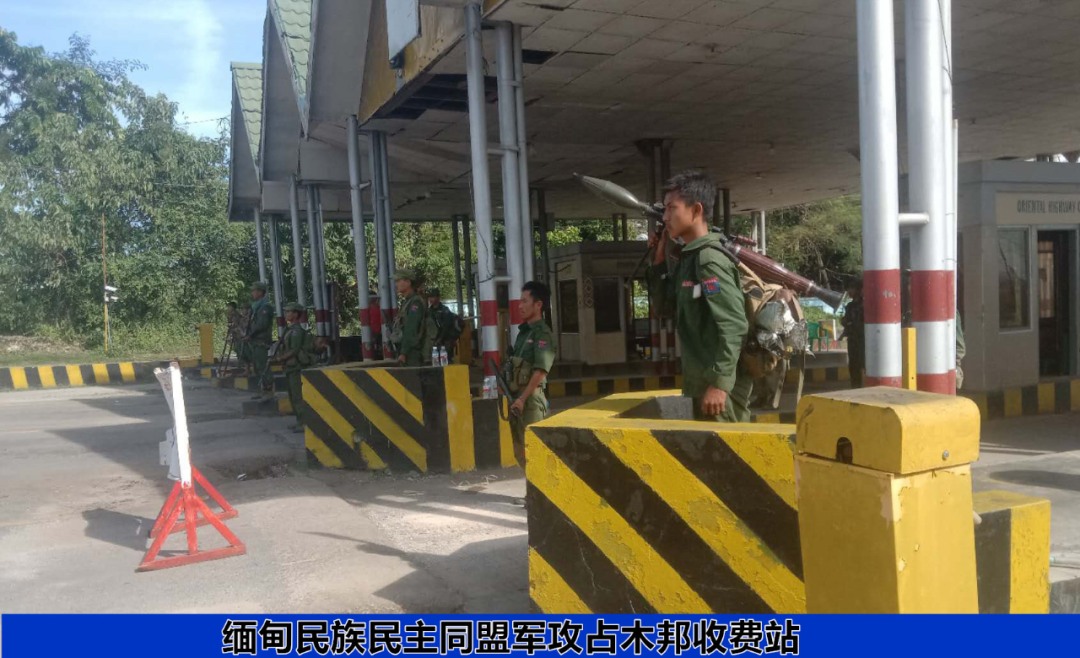Myanmar trading businesses are suffering huge losses after fighting in Shan State shut down the country’s main China border trade zone a week ago.
The ethnic Brotherhood Alliance has taken control of all major routes to the border trading towns of Muse, Chin Shwe Haw, Laukkai and Hseni since launching its offensive against the junta on Oct. 27.
Importers are complaining of endless waits as goods imported from Chinese factories get stuck in Muse, Laukkai, and Chin Shwe Haw.
“We are not able to do anything right now. Cargo trucks are still being trapped in Muse’s 105th-mile trade zone,” said U Htay, the owner of an import company.
The Muse border zone accounts for about 70 percent of Myanmar’s cross-border trade with China.
Exporters handling perishable goods such as fishery products, fruit and vegetables are also facing huge losses as border trade comes to a grinding halt in northern Shan.

Meanwhile, the regime is losing an estimated US$423,000 per day in tax revenue from lost trade via Muse and Chin Shwe Haw.
Experts calculate the junta earned roughly $77 million in tax on trade through the two towns in the first six months of this fiscal year.
Trade at the border gates in Muse and Laukkai has been halted, though both towns remain under junta control for now. Regime officials in Muse’s 105th-mile trade zone have abandoned their posts for fear the fighting will escalate, residents said.
The Chin Shwe Haw border gate is now under the control of the Brotherhood Alliance.
However, authorities in China’s Yunnan province have closed all border gates to Chin Shwe Haw, Laukkai, and Muse.

Two major bridges in Hseni and Chin Shwe Haw have also been destroyed in the fighting.
Big trading companies are now redirecting cargoes from northern Shan gates to Loi Je Town in Momauk Township, Kachin State.
But the smaller Loi Je can handle only a fraction of the trade that normally flows through northern Shan.
“We are still able to export through the Loi Je border trade zone. However, it would be best if all the actors could agree on a ceasefire and start peace talks,” said a member of the Myanmar Rice Federation (MRF).
All sides would suffer if the fighting is prolonged, he added.
Exports normally shipped through northern Shan include vegetables, rubber, fish, prawns, seed oil, rice, live cattle, meat, and sugarcane. It also handles numerous Chinese imports, ranging from electronic equipment, plastics, glass and footwear to toys and more.

















